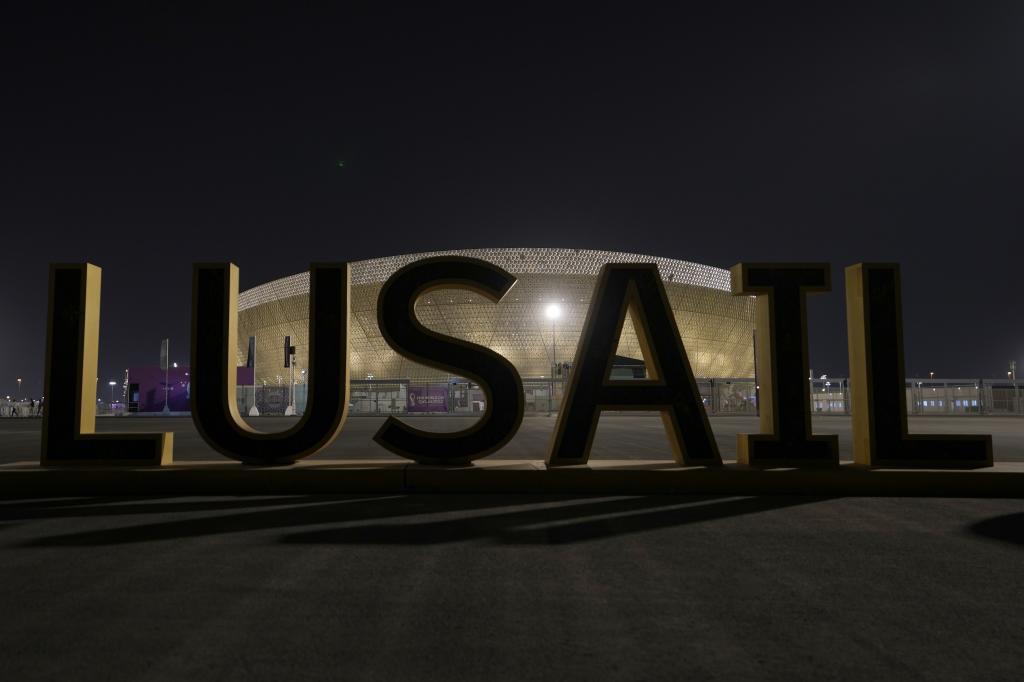Every December 18, Qatar celebrates its National Day, commemorating the unification of 1878. In this era where Gulf states use sports to open up to the world and rebuild their image abroad, the emirate is devoted to football. Two years ago, on that same December 18th, Lusail Stadium hosted the coronation of Leo Messi and Argentina in the final of one of the most socially controversial World Cups in history. Tomorrow, again on the 18th, Doha welcomes Real Madrid to compete against Mexican Pachuca in the Intercontinental Cup final.
The 24 months between the two events, both organized by FIFA on Qatari soil, serve as an excuse to reflect and analyze what has happened, and what has not, in Qatar after the World Cup. "I will return, we will be here to review everything, and all of you will be gone," declared Gianni Infantino, president of the world's football governing body, to the critical press at the close of the 2022 tournament.
Since Qatar was chosen as the World Cup host, international organizations' allegations about the conditions of workers and the lack of human rights in the Arab country have filled headlines worldwide. According to an investigation by the British newspaper 'The Guardian,' over 6,500 workers from Bangladesh, Nepal, India, Pakistan, and Sri Lanka died during the stadium construction. And after football, the allegations continue. Amnesty International states that "progress in improving labor rights has stalled since the tournament ended, and the hundreds of thousands of workers who suffered abuses and were affected still lack access to justice and reparations," describing it as "limited progress."
According to the organization, improvements include the freedom for migrant workers to leave the country, which they did not have before, and laws to limit heat exposure during work. However, they insist that many foreign workers had paid a refundable fee to work on stadium construction, and a large portion has not received it. "Many lost their money, their health, and even their lives while FIFA and Qatar denied their responsibility. Very little has been done since the end of the tournament, and these workers cannot be forgotten," stated Steve Cockburn, director of Economic and Social Justice at Amnesty International.
During the final days of the 2022 World Cup, Infantino announced the creation of the 'FIFA Qatar 2022 Legacy Fund,' a platform where 50 million dollars would be invested to create social programs and support workers' claims, among other things. The project has only just begun a few weeks ago, and critics see it as a small amount, focusing on the 7.5 billion generated by the tournament.
Meanwhile, Qatar's football reality has not stopped. The country hosted the Asia Cup this year, will organize the Arab Cup in 2025, and maintains its dream of becoming an Olympic host, with 2036 in mind. All to maximize and leverage the 200 billion, the unofficial figure most discussed, that the country invested for 2022. The stadiums continue to operate at full capacity, now blending football with culture, another major medium-term goal for the country to further enhance its image.
Geopolitical and Football Battle
The government planned to dismantle some, like the famous 974 built with containers, but for now, it remains standing. And others where the capacity was supposed to decrease, it remains unchanged. Why? Partly due to the challenge from a neighbor threatening to steal the spotlight: Saudi Arabia. The Saudis, who hosted the Intercontinental Cup last year, have just been confirmed as the host of the 2034 World Cup despite allegations from organizations like Amnesty International. For several summers now, they have invested hundreds of millions in their football league, with the signing of Cristiano Ronaldo as the pinnacle, forcing the football world to shift its focus from Doha to Riyadh.
It is a geopolitical and football battle that seems to have no end, with the Olympic Games as the ultimate goal for both oil-rich states. Qatar, which devoted all its investment to the World Cup and that PSG of Mbappé, Neymar, and Messi, is now trying to shift its center of attention to compete locally with Saudi Arabia. This summer, the signings of Spaniards Joselu, Luis Alberto, and David García by Qatari league teams have made headlines, where another former star like Verratti was already playing, but Saudi Arabia continues to reign in accumulating European talent.
